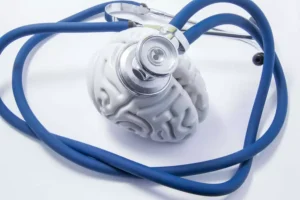
Read more about foods to eat and avoid when hungover and effective home remedies for a hangover. This involves the body regulating itself as the alcohol leaves the bloodstream. However, the progression and severity of symptoms over time can vary from one person to the next. And the more congeners there are, the more likely you are to develop a hangover. If you or a loved one has a chronic drinking problem, it is important to seek professional help. Alcohol abuse can cause health problems, as well as social, interpersonal, and work issues.
- But your body generally eliminates all the alcohol from your system after five to six hours, yet still remains adjusted to the presence of alcohol.
- But some people are more likely to have hangovers than others are.
- For over 20 years Dr. Umhau was a senior clinical investigator at the National Institute on Alcohol Abuse and Alcoholism of the National Institutes of Health (NIH).
- Hangovers after a single night’s drinking go away on their own.
- Some people experience certain symptoms more severely than others.
How are hangovers diagnosed?
A hangover is a collection of unpleasant physical and mental symptoms that occur after a session of heavy alcohol consumption. The severity of hangover symptoms can depend on many factors, such as how much alcohol was consumed and the type of alcohol. But hangovers are caused by only one thing—drinking too much alcohol. A hangover is unpleasant, but symptoms tend to go away within a day or so. If you drank too much alcohol and feel sick, try at-home hangover remedies like drinking plenty of water, eating some carbs and sleeping. You need to let your body rid itself of the alcohol and heal.
- Enzymes, mainly in the liver, metabolize (break down) alcohol, releasing a poisonous byproduct called acetaldehyde.
- A 2017 study found that these aspects of cognitive function were all highly impacted during a period of hangover symptoms.
- The researchers concluded that 25% to 30% of people who drink may be resistant to hangovers.
- Drinking ginger tea or chewing fresh ginger can help ease stomach discomfort.
- Learn the common physical indicators of alcohol abuse and why they should not be overlooked.
Severe Hangover Symptoms
At first, this can be beneficial, making you feel relaxed as your blood pressure is lowered. Let’s look at how to tell the difference between a mild, temporary hangover that you can treat at home and one that may need some extra medical attention. Individuals who routinely consume alcohol in large quantities are more susceptible to frequent illnesses and infections and slower healing of wounds.

Preventing a hangover
Ginger has antioxidant properties that aid digestion and relieve nausea. Drinking ginger tea or chewing fresh ginger can help ease stomach discomfort. In some cases, an antacid may be needed to settle your stomach first.

- Read on for our guide on the causes and symptoms of hangovers, the myths to be aware of, and the essential “dos and don’ts” that could prevent a hangover from ruining your day.
- Jaundice, or the yellowing of the skin and eyes, is a common physical sign of liver dysfunction.
- How much you need to drink to cause a hangover depends on many factors.
These effects can begin while you are still drinking, and can last for longer than the typical how long does a hangover last effects of a hangover. Without medical treatment, you could fall, lose consciousness, or develop health complications due to the delayed effects of alcohol. Because drinking is often an evening activity, hangovers are commonly described as «morning-after» effects.

Alcohol impairs your attention, decision-making processes and muscle coordination. You might engage in risky behavior you wouldn’t ordinarily do. For example, driving during a hangover can be dangerous or deadly. You may build a tolerance to alcohol if Alcoholics Anonymous you drink enough consistently.

A hangover refers to a set of symptoms that occur as a consequence of drinking too much. Hangovers are a common consequence of excessive alcohol consumption. According to surveys, nearly 75% of individuals who consume a large amount of alcohol experience hangovers, while a small percentage may be immune. A hangover consists of unpleasant physical and psychological symptoms that follow alcohol consumption. These symptoms vary in intensity depending on the amount and duration of alcohol intake, individual health, and other contributing factors. A hangover is a common condition that occurs hours after alcohol consumption.
